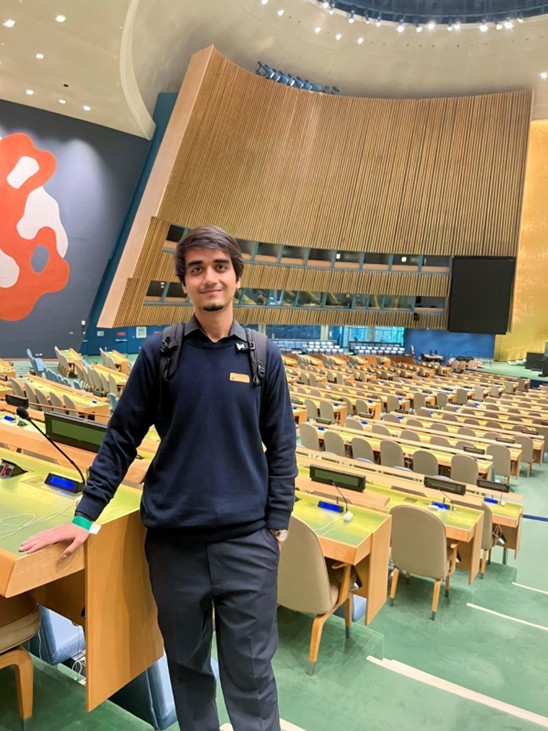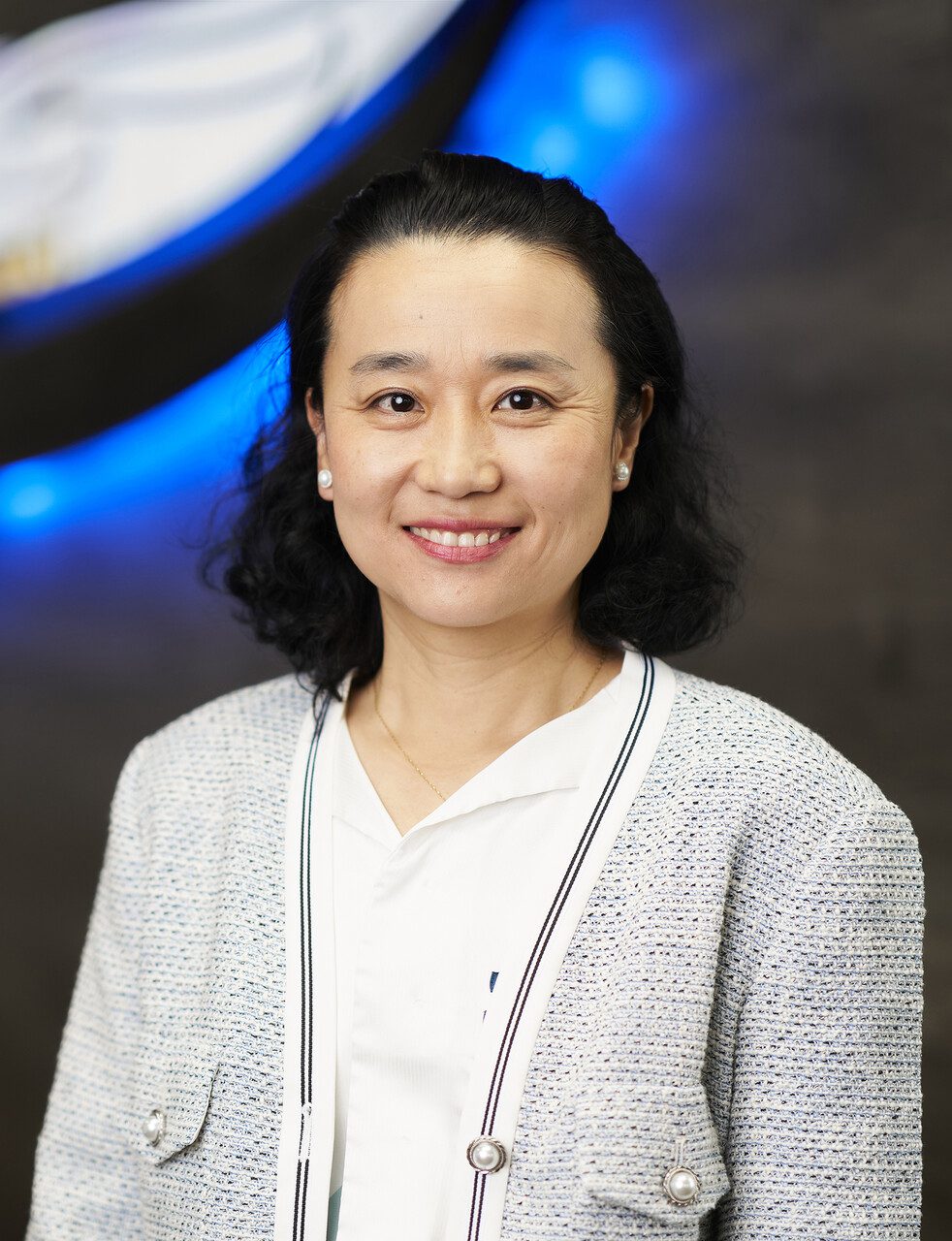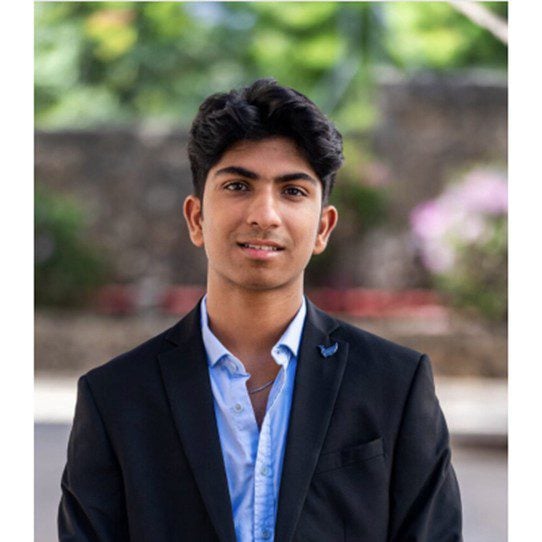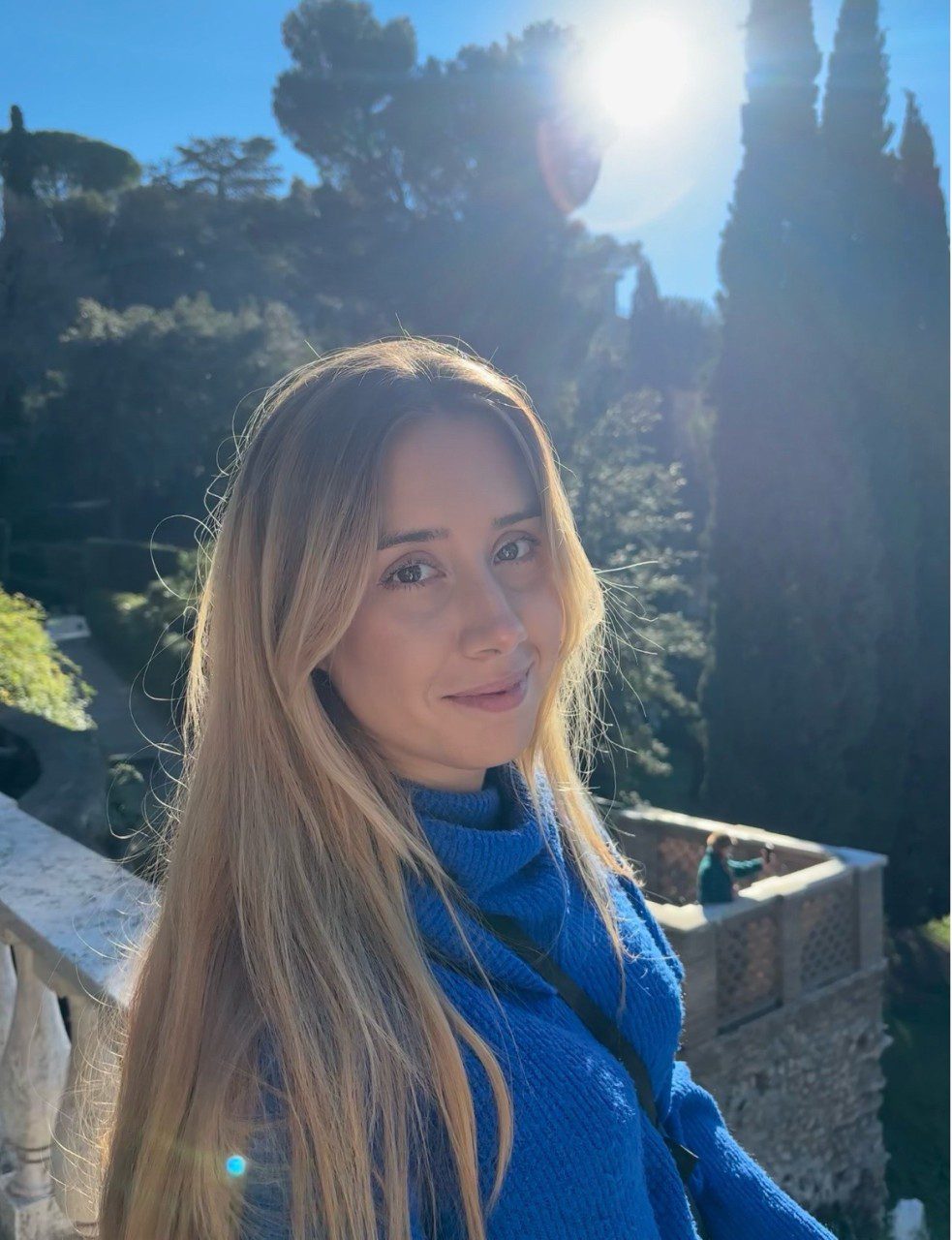How a Pakistani Electrical Engineer Earned the Fully Funded Fulbright Scholarship to Pursue a Master’s in Electrical Engineering at Columbia University
University: Columbia University
Degree: Master of Science in Electrical Engineering
Previous Education: Bachelor of Science in Electrical Engineering – Habib University
Scholarship: Fulbright Scholarship (Fully Funded by U.S. Department of State) + Columbia University Tesla Scholarship
Standardized Exams: GRE – 323 (Verbal: 163, Quant: 160, AWA: 4.5); TOEFL – 119/120
Other Offered Scholarships (if any): Columbia University Tesla Scholarship
Social Media:
LinkedIn: linkedin.com/in/zainhussain96/

The Journey
Hi! My name is Zain Hussain, and I am from Pakistan. I recently returned home after completing my Master of Science degree in Electrical Engineering from Columbia University, on the Fulbright Scholarship. I had previously completed my Bachelors of Science degree in Electrical Engineering from Pakistan, published my thesis as a Conference and Journal Paper, and worked in Customer Support for a U.S. based company leading up to applying for the scholarship (yes, quite the departure and while not directly related to my field, I welcomed the experience and exposure).
At Columbia University, I specialized in Smart Electric Energy, which focused on Renewable Energy, increased electrification (such as for buildings and electric vehicles), and Smart Grids.
I'd always been passionate about Electrical Engineering; electricity is the lifeblood and the backbone of modern life as we know it. It powers and makes possible everything that we do, and without it, we'd basically be back in the Stone Ages.
Growing up in Pakistan, where load shedding and power outages are so incredibly common, I became deeply interested in learning more about electrical systems and understanding how they could be improved, as having stable, around-the-clock access to electricity is a necessity.
That interest only grew stronger with the realization of the effects of Climate Change and its urgency. Our reliance on fossil fuels, the primary source of electricity generation since the Industrial Revolution, must change if we are to protect our planet, and that is why I wished to pursue further education in this field - to try and be a part of that transformation.
Fulbright Scholarship Details
I was awarded the Fulbright Scholarship, which is funded by the U.S. Department of State through the Institute of International Education or IIE. It is a fully funded scholarship that supports students in pursuing a Master's or PhD degree at a University in the United States. In my case, that was Columbia University, which was, honestly, a dream come true.
The scholarship covered all major expenses: tuition, round-trip airfare, health insurance, and a decent monthly living stipend.
As the Fulbright scholarship is an educational and cultural exchange program, scholars are required to return to their home country for a period of the same duration that they were in the U.S.A. after completing their degree. However, it's a small price to pay considering all the benefits that this opportunity provides to you. I should add that in addition to Fulbright, I was also awarded a scholarship from Columbia University, which was their Electrical Engineering Tesla Scholarship. According to the Columbia Engineering website, “this honor is conferred only upon a small number of exceptional applicants to the MS program.”, and “extends special recognition to MS applicants with a distinctly superior undergraduate academic record”. While the scholarship amount was provided directly to the IIE, I still consider it an honor.
Educational Background
My Bachelor of Science degree, before the Master's and Fulbright, was in Electrical Engineering from Habib University, graduating with the Class of 2020. My CGPA was a modest 3.54.
A major source of influence during my Undergraduate, and somebody I would definitely like to extend my deepest gratitude to, would be one of my Professors at Habib University, Mr. Junaid Ahmed Memon. He was one of my professors for multiple courses at Habib University and was also my Final Year Project (FYP) advisor. His guidance, mentorship, and support were crucial in many, many ways. He was also the one who encouraged me to publish my FYP first as a Conference paper and then as a Journal paper. His support was instrumental in building both my confidence and academic profile, and it ultimately strengthened my application for graduate studies.
How Did You Prepare to Apply for the Fulbright Scholarship?
Honestly, there wasn’t much preparation involved when it came to applying to the institutions. With Fulbright, IIE handles everything; they apply to the Universities on your behalf, using all the information that is provided to them in the Fulbright application. I did have to give an interview with Columbia University, but it was more of a general Q/A, i.e., what were my thoughts on academic integrity, and sexual harassment in the student body, etc.
As for preparing for Fulbright, I had a general understanding of what the application process looks like, partly since my sister was also a Fulbright alum; she went to the University of Pennsylvania. While that familiarity helped, my main goal was to try and give it my best.
I should also mention that I landed the scholarship on my 2nd attempt, and not the 1st. I never heard back from them on my 1st attempt, which, in hindsight, is safe to assume I got rejected. I didn’t let that stop me, though. I reapplied in the next cycle and found success. Persistence usually pays off in the end, and I'm grateful it did.
Thankfully, most of the information for Fulbright is readily available in their official announcement, that gets released every year. Every other common question is answered in the application itself. For anything else, there were plenty of online communities and Facebook groups I was a part of. Fulbright Aspirants, Brightlink Prep, and Be Scholared, to name a few. These were great for finding answers, sharing experiences, and getting honest advice from people who had previously found success and from other similar applicants at various stages of the process.
For the GRE, I took it in August 2020. For preparation, I used one of those prep books; I believe it was published by Barron’s, and had Flashcards for English Vocabulary. All the resources I used were readily available online and in stores. The score I ended up getting was 323 overall: 163 in English, 160 in Math, and a 4.5 in the essay. For the TOEFL, I got a near-perfect score of 119 out of 120. I don't quite remember what the preparation was, but I found the test itself far more straightforward compared to the GRE.
What Do You Think Made Your Application Stand Out?
From my understanding, the Fulbright application and candidate are evaluated primarily on the following 4 components: Undergraduate CGPA, GRE score, Reference Letters or Letters of Recommendation, and the 2 Essays: Personal Statement and Statement of Interest.
There are also a variety of other factors, like Work and Extracurricular Experience, that play a role and help in boosting your overall profile. While my work experience wasn’t anything spectacular, having two published papers was definitely a plus.
To be honest, my CGPA wasn’t the highest, and while my GRE score was decent, it wasn't exceptional; a little lower in Math than I would've liked. With the reference letters, you’re at the mercy of how your referees choose to describe you.
There were aspects of my profile I simply couldn’t change anymore. My CGPA was the culmination of 4 years of hard work. I couldn’t go back and redo that. Sure, a 3.6 or 3.75 might have looked better than a 3.54, but there wasn’t much I could do about it now. As for the GRE, I could’ve retaken it to try and boost my scores, but honestly, it’s a 4-hour standardized test with strict testing conditions, and I felt my first attempt was strong enough.
That being said, my test day was anything but ideal. The electricity went out during the exam from the torrential rain, and I ended up taking the latter half of the test in near darkness with water seeping into the house just outside the room I was in. So, all things considered, I think I did just fine.
Ultimately, I believe what made my application stand out were my essays: my purpose, my perspective, and persistence. I used the essays to present who I was, what drove me, and how I hoped to make a difference.
A huge and heartfelt shoutout to Khaula Rizwan, whose expert guidance as a consultant for major scholarships like Fulbright was invaluable. Her insight, support, and belief in my story played a pivotal role in helping me shape essays that truly reflected who I am. I owe a great deal of my success to her.
What Would You Have Done Differently if You Were Going Through the Process Again?
I’ve always believed that with anything worth doing, always try to do your best so you don’t have any regrets later on. With my second Fulbright attempt, I tried to do just that.
That being said, in case I hadn’t gotten Fulbright the second attempt either, I might have considered picking new referees or sought out more third and fourth opinions on my essays to try and refine them further. I don’t think I would’ve attempted the GRE a second time; the effort and conditions around the test were tough enough the first time, and I felt my score was good enough.
There’s also an element of luck involved with these things. You do your best, put together the strongest application you can, and hope for the best, that it resonates with the reviewer and everything works out.
What Advice Would You Give Those Looking to Apply for a Similar Scholarship?
If there’s one piece of advice I can give, it’s that: don’t be afraid of failure. Yes, it can be incredibly disheartening to put in months of effort into something and not even hear back, like after my 1st Fulbright attempt, but I used that as a driving force to try and make my 2nd attempt the best it could be. In many ways, the first attempt laid the foundation. I reused and refined a lot of the material I had already created, which made the second round more efficient and ultimately, more effective. So even failure can be part of the process, and it all worked out in the end.
Another thing that really stuck with me was something a close friend said. At the time, I was still job hunting after graduation, and she reminded me that till I found a job, preparing for the GRE and applying to Fulbright were my full-time jobs, and like any full-time jobs, required putting in at least 8 hours a day of work, 5 days a week. That mindset shift was incredibly helpful and really helped me contextualize things. Fulbright is incredibly competitive. It requires time, effort, and a lot of commitment. However, it is not insurmountable, and if you give it your best and learn from the mistakes, it is absolutely achievable.
Want to submit your
scholarship journey?
Submit Your Story Here!
More Scholarship Recipients

I obtained my bachelor’s degree from a leading university in mainland China. After graduating, I worked at Huawei Technolo .... Read more

My name is Arsh Dharani, and I am an international student originally from the Democratic Republic of the Congo (DRC). I am .... Read more

Hi! My name is Arawa. I’m a Marie Skłodowska-Curie PhD researcher working on AI-based neuroimaging biomarkers for Parkins .... Read more

Leave A Comment